When it comes to rental properties, maintenance is one of the biggest expenses for owners and property managers. Routine maintenance and equipment breakdowns are usually expensed to the owner. However, the biggest exception to that is damages caused by tenants.
Anytime a maintenance request is submitted, property managers are usually asking themselves, and their vendors, “was this caused by the tenant?”
Since it’s your owner who has to pay these bills, you cross your fingers in hopes that you can charge it back to the tenant, rather than sending the invoice to the owner.
As experts in maintenance, we are all too familiar with this question. Every time I think about it, my mind jumps to J.K. Simmons’ recurring role in the Farmers Insurance commercial campaign.
“We know a thing or two because we’ve seen a thing or two.”
Before we dive into landlord vs. tenant maintenance responsibility, we acknowledge the landlord’s responsibility to keep the property in a safe and livable condition. The instances laid out in this article are situations where the tenant has caused damage or the need for maintenance. If you are wanting to know the legal landlord requirements, please look up your state codes. This is easily accessible online.
It can be difficult to determine if repairs are tenant-caused or not, but here are ten examples of damages caused by tenants that we commonly encounter.
Jammed Garbage Disposal
A jammed garbage disposal is one of the most requested services among tenants. Oftentimes, they don’t even realize that they have caused this issue.
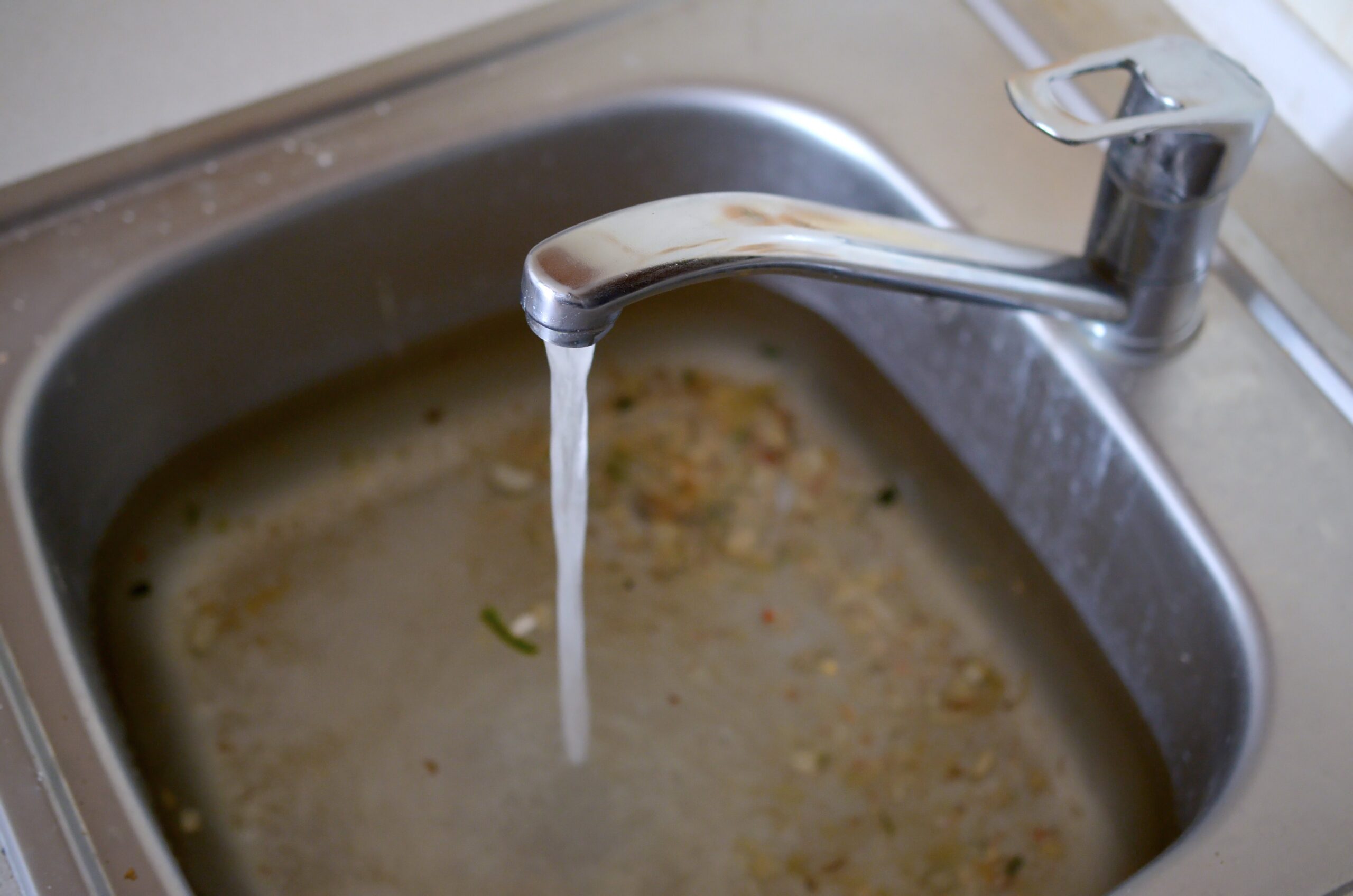
Here are a few things that jam garbage disposals:
A jammed garbage disposal is usually caused by the tenant, so this can be an easy repair to coach the tenant through. If you let them know that they will be footing the bill for anything jammed in the disposal, they may be more likely to make the effort to unjam it themselves. If you do decide to coach them through unjamming it themselves, make sure you have them unplug the unit before proceeding. The last thing you want is an injury.
Clogged Toilet/Backed-up Drains
This one is harder to prove, but water backing up in a home is either going to be caused by the tenant or an issue with the drain line. If the tenant is using flushable wipes (which should be outlawed in lease agreements), using too much toilet paper, flushing feminine products (again, outlawed), or flushing other non-flushable items, the line will eventually back up whether there is a compromised drain line or not.
If you encounter anything besides normal toilet paper usage, you will likely have a case to bill it back to the tenant. If it is toilet paper causing the blockage, you may need to have a drain cleaner run a camera to make a case for a bill-back.
To prevent routine backups, request that your tenants only flush standard toilet paper down the toilet. It’s also good to ask them to avoid putting coffee grounds in the garbage disposal.
When you have a drain cleaner go out, ask them to document anything they pull back on their auger. This will go a long way in your attempt to bill back to the tenant.
Drywall Damage
Apart from a hidden leak that caused damage, almost all drywall damage is caused by the tenant. Holes in the drywall don’t magically appear. These damages are commonly caused by someone. Be careful with this one though, as some drywall repairs should be considered normal wear and tear. You should exclude nail holes, small scuffs, and door dings (if you don’t invest in door stoppers).
Clogged Dishwasher
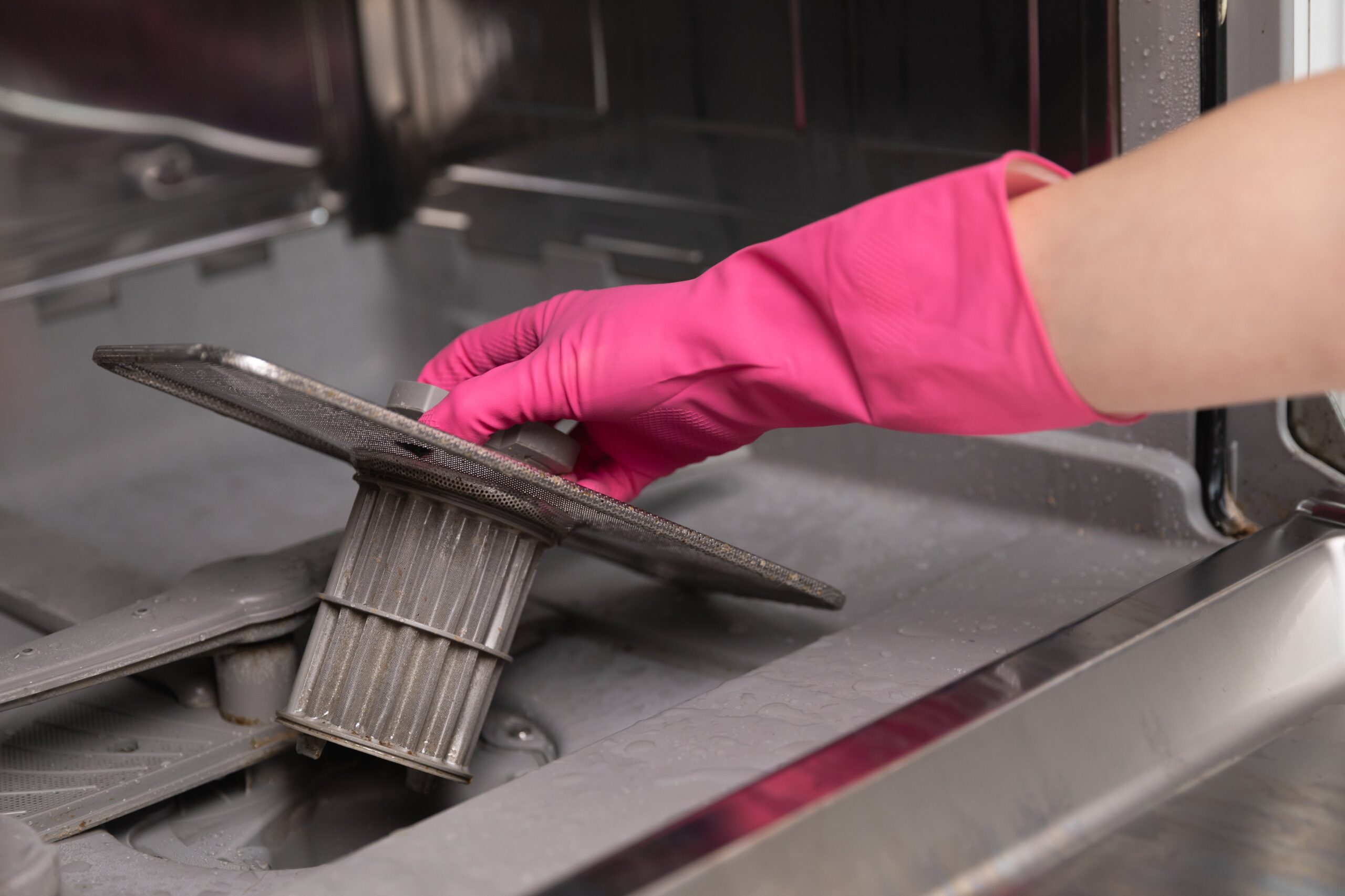 Too many people in this world believe the lie that you can put a dish in the dishwasher without rinsing it. My wife and I have argued over this countless times. That has resulted in me doing all of the dishes. All of those dish detergent commercials have steered the general population astray. In theory, the dishwasher will clean the dish. But the food that’s on that plate or bowl needs to go somewhere, and most of the time it will get stuck in the filter or the dishwasher drain line. The cleaner the dishes go in, the better your drain system will work.
Too many people in this world believe the lie that you can put a dish in the dishwasher without rinsing it. My wife and I have argued over this countless times. That has resulted in me doing all of the dishes. All of those dish detergent commercials have steered the general population astray. In theory, the dishwasher will clean the dish. But the food that’s on that plate or bowl needs to go somewhere, and most of the time it will get stuck in the filter or the dishwasher drain line. The cleaner the dishes go in, the better your drain system will work.
If a tenant is throwing unrinsed dishes in their dishwasher, then it will eventually clog somewhere in the system. If your appliance tech finds a bunch of food lodged in the drain hose, send that invoice back to the customer!
Overloaded Circuits
When the power goes out in a unit, that is considered an emergency. But is the root of the problem always an emergency? Not exactly.
If you ask an electrician, they will likely tell you that a big portion of their no-power calls has to do with one of these things: tripped breakers, GFCIs, and overloaded circuits.
One of the most deflating costs for a rental property owner is a bill from an electrician for flipping a breaker. While that should have been troubleshot on the front end, there is sometimes a culprit of the tripping.
If the tenant has too much power drawing from one outlet and/or circuit, then it could be causing the tripping. We often see this in kitchens or during the winter months. Either the tenant is using too many appliances in one area at the same time, or they are overloading the circuit with a high-use space heater to keep warm.
Sure, sometimes there is nothing that the tenant can do and the panel simply needs to be upgraded. But on the other hand, there may be more than enough power for the tenant’s needs and they are just expecting too much from one area. Your electrician should be experienced enough to tell you if it’s just a tenant overload or if your system needs to be upgraded.
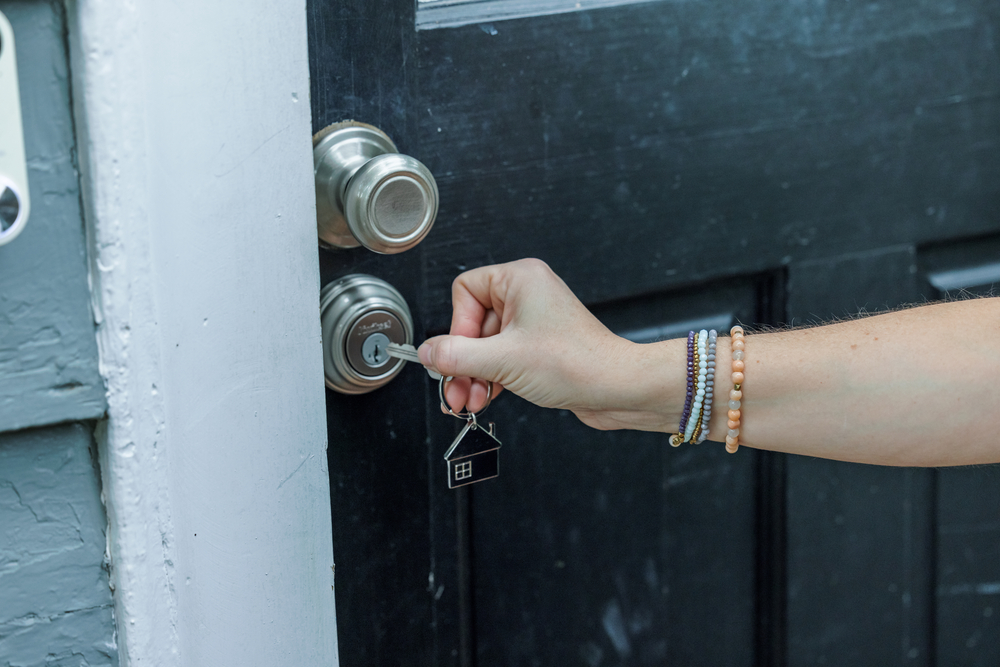
Lockouts
If a tenant loses a key or locks themselves out of the house, there’s no question who will be responsible for that bill. Most property managers have that written into the lease agreement.
If you are local to the area, this is a good opportunity to add to your margins. If you can bring a spare key to the property on the spot, you can bill for that trip, rather than paying someone else to swap out the locks. That’s a profit for your company, paid by your tenant.
Pest Control
Many property managers make pest control part of the tenant’s responsibilities in the lease. Yes, pest control is something that can be prevented. However, many pest issues may also be caused by the tenant living in certain conditions. In more specific terms, if the tenant doesn’t keep their house clean, it is more likely to experience rodent and bug problems.
Certain programs, such as PestShare, allow tenants to opt-in to discounted pest control as part of their resident benefits package.
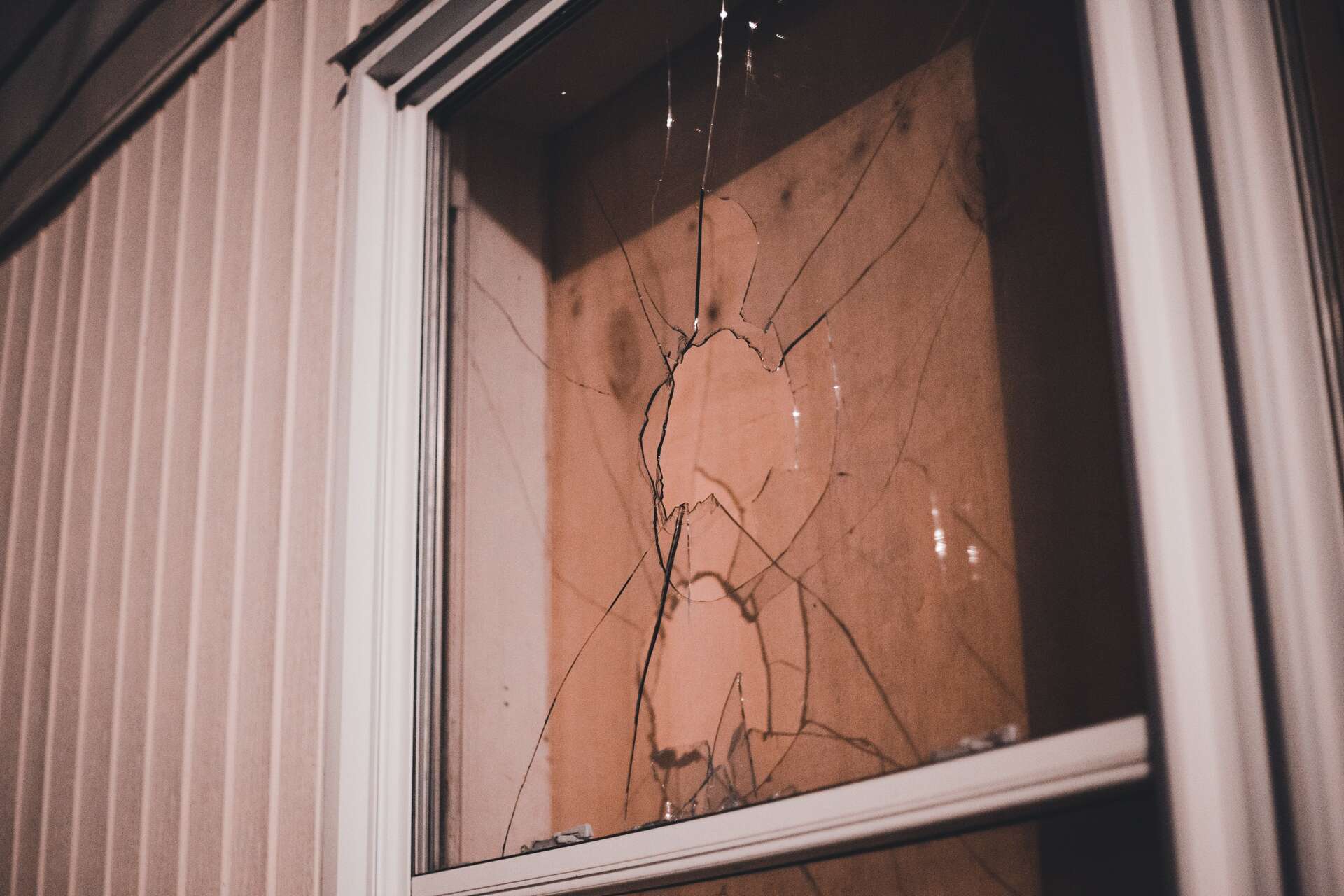
Broken Windows
Windows never break themselves, but the tough part is determining what caused the damage. Storms or break-ins are common causes of a broken window pane, but it’s often the tenant. If you catch yourself in a situation where the tenant is denying any wrongdoing to avoid the bill, ask your technicians to look for the following:
These questions might help, but tenants will usually deny, deny, and deny in these situations. It may be difficult to prove, but the majority of these situations are caused by the resident or someone in their family.
Mold and Mold Tests
Every property manager has experienced this at one time or another. A tenant starts to believe that they have mold in their home, so they demand a professional mold test. In an effort to be a fair and reasonable property manager, they oblige the request, only to find that there is no mold present in the home. If mold is found, the property manager is responsible for getting that safely resolved. If no mold is found, then the tenant should be held responsible for that bill, since they were the ones who requested it.
If mold is found, you need to identify the source of the moisture. In order to bill this back to the tenant, you will need discernible evidence showing that they are the reason the mold occurred. Maybe it was showering without a curtain, leaving a pile of wet clothes, not cleaning up spills, etc. If it’s coming from some type of leak, then the tenant will not be responsible. They are not going to be at fault for a leaking roof, toilet, or pipe.
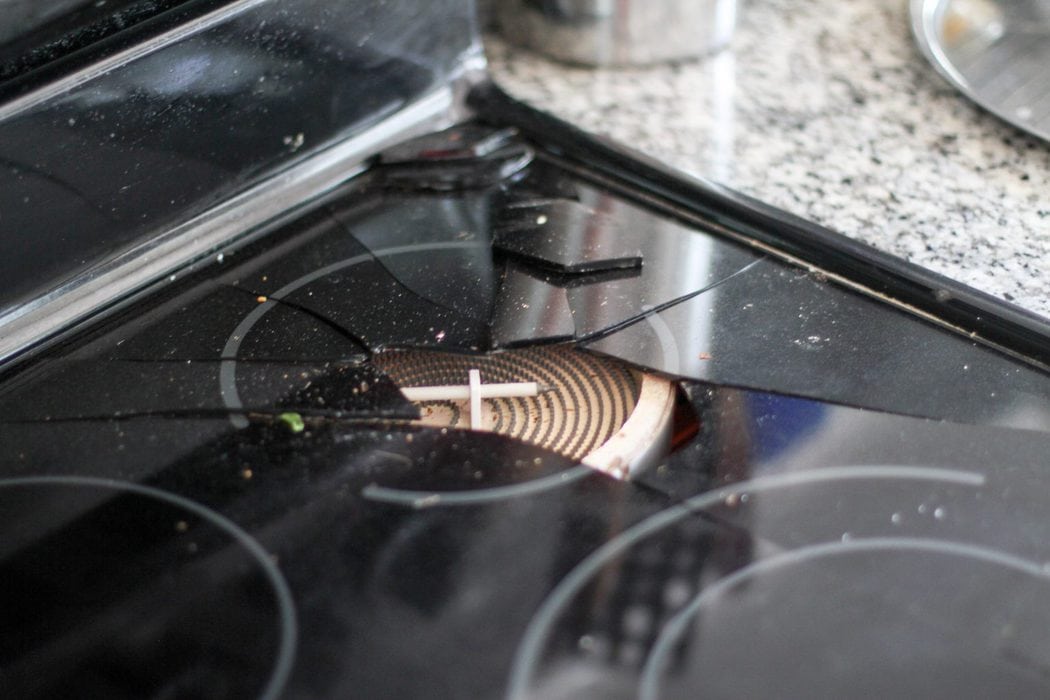
Cracked Cooktop
Cooktops won’t just crack on their own. They are designed to withstand extreme temperatures and heavy pots. If your property’s cooktop ends up cracked, it was likely due to heavier use than intended. The three main reasons that a cooktop will crack or shatter is due to extreme temperatures, weight, or impact. All of these are considered tenant-caused damages, but impact is the easiest to prove. Look for the type of cracking in the cooktop and decide based on those findings.
Just take a look at cracked cooktop in this picture. Kristen, of Frugal Girl, detailed the interesting story of how she broke her stovetop.
Fire
I had to mention it. Fires are rare, but they do happen, and they are caused by tenants on occasion. Luckily, this is exactly why property managers should require renter’s insurance.
How to Handle Damages Caused by Tenants
Trying to enforce tenant-caused repairs can be as difficult as proving them. All logic and evidence may point to the tenant being at fault for the problem, but tenants will fight tooth and nail to not pay for that request. You might even feel like a detective. If you find yourself in this situation, you may take the following steps:
Step 0) Before you run into this, make a list of commonly tenant-caused repairs and educate yourself on the correct questions to ask.
Step 1) Ask your tenant for the details of what happened, along with pictures.
Step 2) Once you have the information, ask your vendor to document the problem by taking pictures. Oftentimes they can determine who caused the damage using logic.
Step 3) If you have gathered some evidence, start by asking, not accusing. If you accuse the tenant, they may jump to the defense and begin covering their tracks. If you ask them, they may just tell you!
Step 4) Depending on how they respond to step 3, kindly remind them of your policy.
Step 5) If they deny any wrongdoing, offer to split the cost of the repairs with them. At this point, you want to avoid paying the full cost of repairs.
Step 6a) If the tenant does agree to pay the cost of the repairs, make sure you work with them to find an agreeable and fair price. Let them be the ones to sign off on any quotes.
Step 6b) If you have evidence that the damage was caused by the tenant, but they refuse to pay the bill, document everything and you may be able to recoup the cost from the security deposit.
As mentioned before, take none of this information as legal advice. Every state has different laws surrounding landlord/tenant responsibility and this does not consider all of those varying regulations. This article is written based on the thousands of work orders that we have completed for rental property managers. The manager must comply with local and federal rental laws.
Anything found written in this article was written solely for informational purposes. We advise that you receive professional advice if you plan to move forward with any of the information found. You agree that neither Lula or the author are liable for any damages that arise from the use of the information found within this article

something